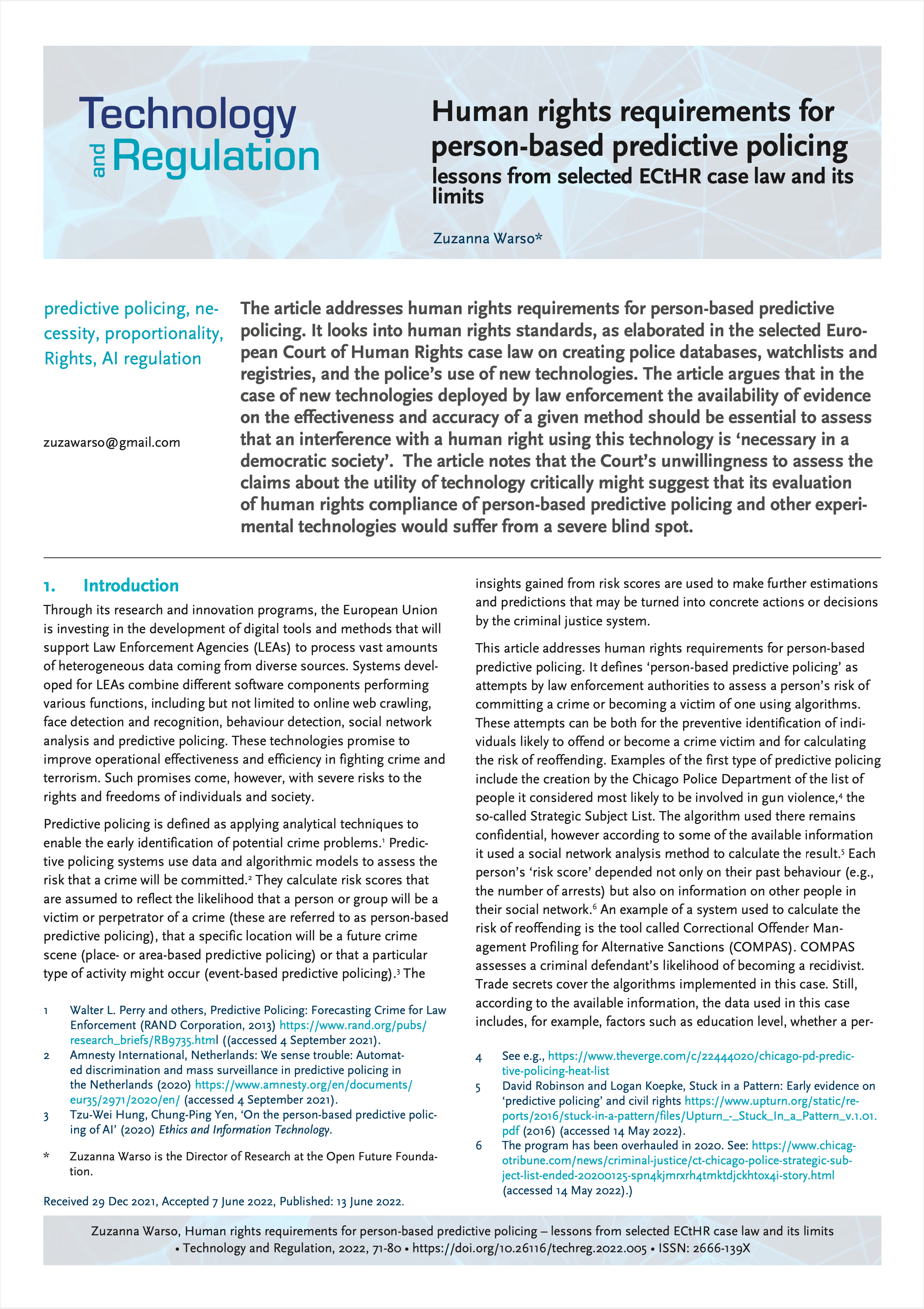Person based predictive policing
lessons from selected ECtHR case law on the right to respect for private life
DOI:
https://doi.org/10.26116/techreg.2022.007Keywords:
predictive policing, human rights, right to privacy, European Court of Human Rights, European Convention on Human Rights, necessity, proportionalityAbstract
This article addresses human rights requirements for person-based predictive policing. It looks into human rights standards, as elaborated in the selected European Court of Human Rights case-law on the right to respect for private life. Two groups of cases are analysed. The first group concerns the creation of police databases, watchlists and registries. The second relates to the police's use of new technologies. The article analyses the application of the three-step test in these judgments, namely whether interference with the right was ‘prescribed by law’, whether it ‘pursued a legitimate aim’ and whether the interference was ‘necessary in a democratic society’. The article concludes that for interference with the right to privacy by a person-based predictive policing system to be justified, evidence on the effectiveness and accuracy of the system is required.
Downloads

Downloads
Published
Versions
- 17-06-2022 (3)
- 13-06-2022 (2)
- 13-06-2022 (1)
Issue
Section
License
Copyright (c) 2022 Zuzanna Warso

This work is licensed under a Creative Commons Attribution-NonCommercial-NoDerivatives 4.0 International License.
Submissions are published under a Creative Commons BY-NC-ND license.’


